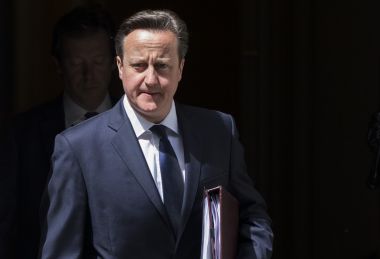Could targeting 'non-violent extremism' just attack passionate belief?

Anti-extremism measures run the risk of simply being "an attack on thinking big, thinking differently and arguing passionately," a prominent London priest has said.
Writing in the Guardian, Giles Fraser – priest-in-charge at St Mary's Newington in South London – argues that attempts to curb extremist thinking in the UK could target those who dare challenge the notion of quiet, inoffensive religion.
British Christians have in the past adapted this strategy, he adds. "Under pressure not to 'do God', the wet non-committal English clergyman became a figure of fun – at best, a local amateur social worker, and at worst, a social climbing hypocrite. The Vicar of Dibley or Mr Collins."
Islam is more forthright in its discussion of God, sex and politics, Fraser says, and it is this that Cameron's measures want to stamp out. The PM last month outlined his strategy to defeat the "poison" of Islamist extremism in the UK, including empowering parents to confiscate passports of children they suspect of planning to leave the UK for Syria, and reducing segregation in schools. He focused, too, on the way in which some of those who have joined jihadi groups in the Middle East were radicalised.
"Many of them were first influenced by what some would call non-violent extremists," Cameron said. "It may begin with hearing about the so-called Jewish conspiracy, and then develop into hostility to the West and fundamental liberal values before finally becoming a cultish attachment to death. Put another way, the extremist worldview is the gateway, and then violence is the ultimate destination."
Fraser takes issue with Cameron's attack on 'non-violent extremism', however. He claims it is "an attempt to replay that clapped-out C of E strategy of stopping people talking about God in a way that might have social or political consequences.
"Cameron, of course, thinks of this sort of political God-talk as radical and extreme."
The vicar argues that by spying on schools and universities and turning them into "part of the security apparatus", we do ourselves a disservice. Do we really want to censor "potentially world-changing radical ideas – like Plato or Marx or Jesus or Muhammad?" he asks.
Theology that encourages violence is absolutely wrong, Fraser concludes, but attacking non-violent extremism "is simply an attack on thinking big, thinking differently and arguing passionately."
"It comes from a now defunct C of E mindset ... that assumes it's the job of religious people to be pastorally nice, softly spoken and uncontroversial," he continues.
"But that's not Jesus. And like him, I believe in pulling the mighty from their thrones and lifting up the lowly. And I believe there is an authority greater than yours – one I would obey before I would obey the laws of this land. And if that makes me a dangerous extremist, Mr Cameron, then you probably ought to come over to south London and arrest me now."











